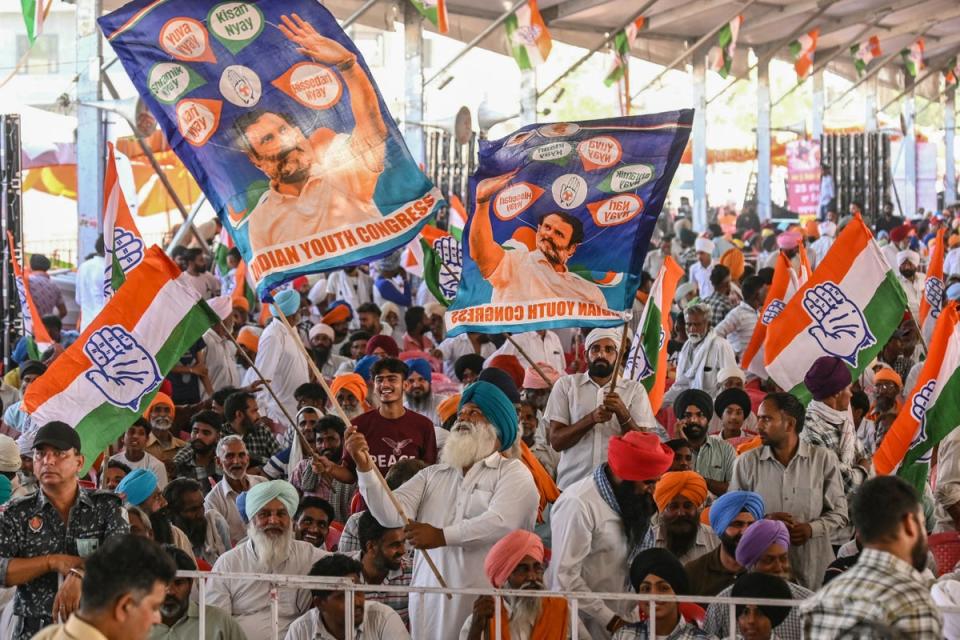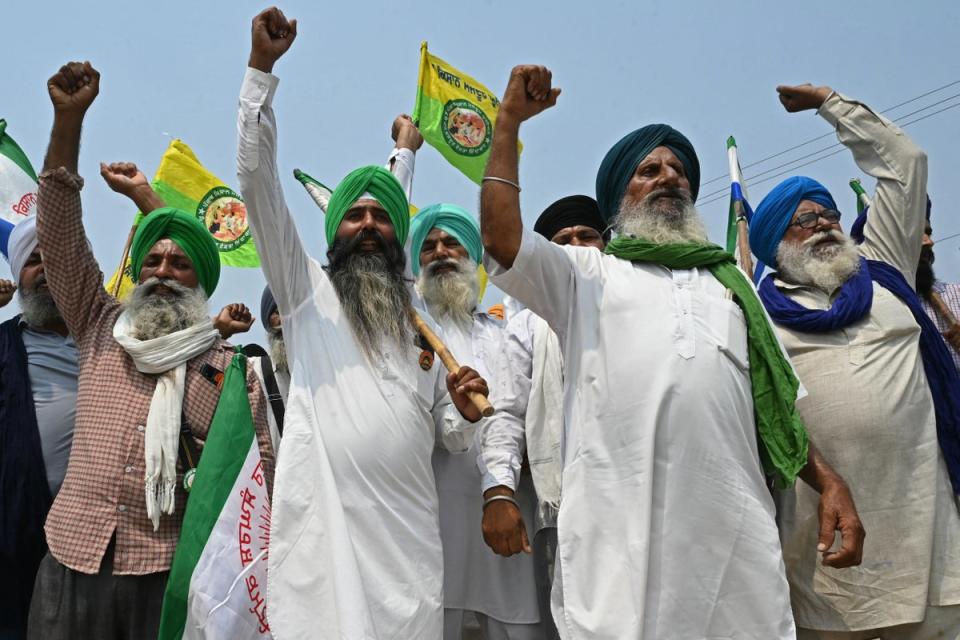India election exit polls show Modi winning with large majority
Narendra Modi’s Bharatiya Janata Party (BJP) and its allies are on course to win more than 350 seats in India’s general election, according to four exit polls released after the final day of voting, extending the governing alliance’s already large majority in parliament.
The broad opposition Indian National Developmental Inclusive (INDIA) alliance, led by the Congress party, was projected to win more than 120 seats. India’s lower house of parliament, the Lok Sabha, has 543 seats in total, with a simple majority of 272 required to form the government.
Exit polls have a patchy record in India, with analysts saying it is a challenge for them to get the numbers exactly right in such a large and diverse country. In recent years they have typically predicted the result correctly but underestimated the winner’s margin of victory.
All four exit polls had the BJP-led National Democratic Alliance (NDA) winning more than the 352 seats it won in 2019, with pollsters Republic PMARQ predicting it was likely to win 359 seats, with the INDIA bloc on 154.
The poll from India News-D-Dynamics predicted 371 seats for the NDA and 125 seats for the Congress-led-opposition alliance. Other parties not aligned to either bloc were likely to secure 47 seats, it said.
Polling company Jan Ki Baat projected between 362 and 392 seats for the NDA and 141 to 161 for the INDIA bloc. And pollsters Republic Bharat-Matrize projected the Modi-led alliance would win 353-368 seats in the lower house of parliament. The INDIA bloc was unlikely to win more than 133 seats, its survey said.

The opposition alliance had already dismissed the exit polls ahead of their publication, calling them “prefixed”.
Nearly one billion people were eligible to vote in the seven-phase election that began on 19 April and ended on Saturday, held through the worst of the scorching summer heat in many parts.
Mr Modi began his re-election campaign by focusing on his achievements over the last 10 years but soon switched tactics to mostly targeting the Congress by accusing it of favouring India’s minority Muslims. Islamophobic party adverts and rally speeches by the prime minister led to admonition from the election commission but no further action.

Pre-poll surveys suggested the BJP would easily keep or extend its majority in the election, and Mr Modi’s top campaigners spoke of winning as many as 400 seats. But the party ran into a spirited campaign by the INDIA alliance, sowing some doubt about how close the race might be.
The opposition has largely campaigned on affirmative action programmes and saving the country’s constitution from what they call Mr Modi’s dictatorial rule, an allegation the BJP denies.

India’s election commission will count the ballots, which are all entered into electronic voting machines, on 4 June. Results are expected the same day.
A victory for Mr Modi, 73, will make him only the second prime minister after India’s first, Jawaharlal Nehru, to win three consecutive terms.


